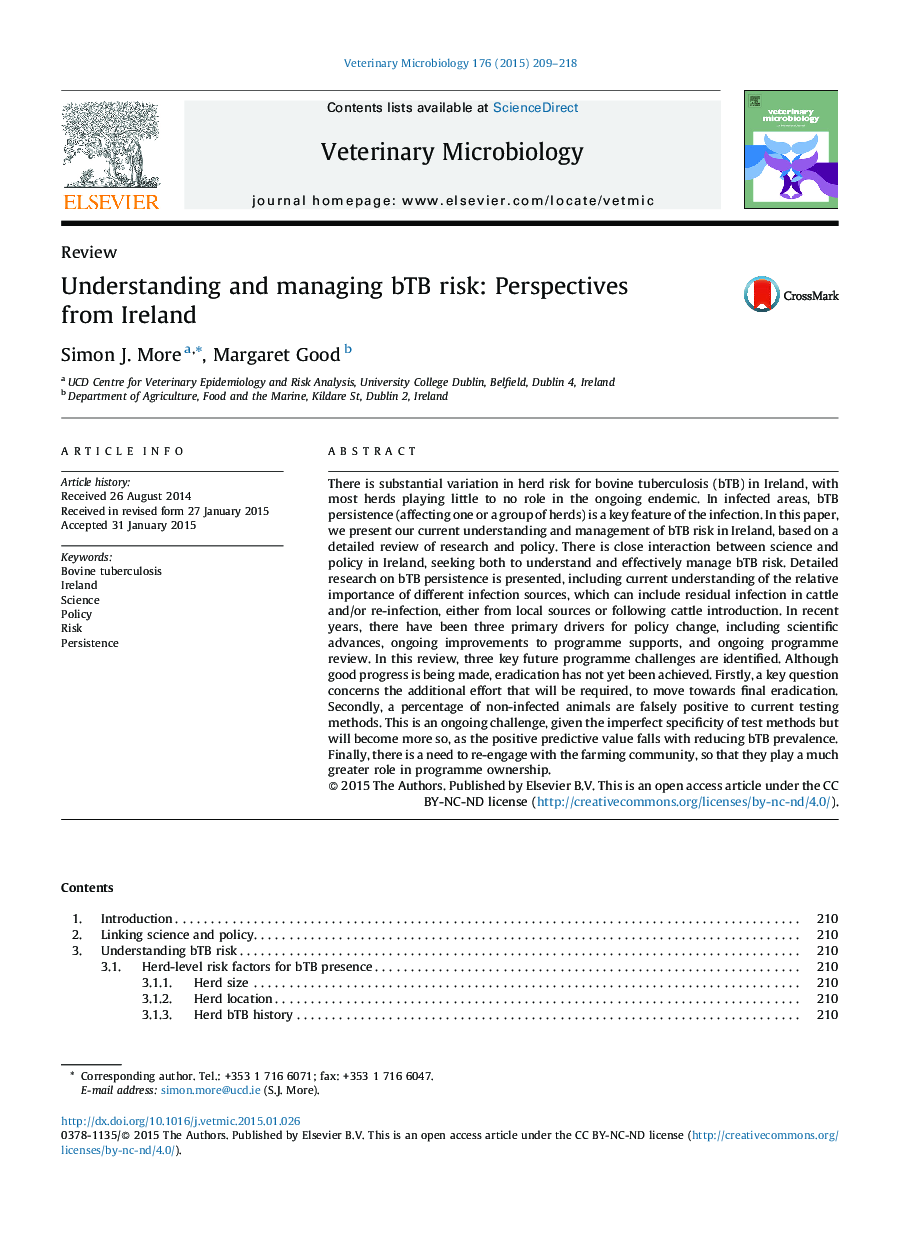| Article ID | Journal | Published Year | Pages | File Type |
|---|---|---|---|---|
| 5799986 | Veterinary Microbiology | 2015 | 10 Pages |
â¢This paper reviews current understanding and management of bTB risk in Ireland.â¢Science is an important driver of bTB policy in Ireland.â¢There is substantial variation in herd bTB risk.â¢bTB persistence (affecting one or a group of herds) is a key feature of infection.â¢The relative importance of different infection sources is increasingly understood.
There is substantial variation in herd risk for bovine tuberculosis (bTB) in Ireland, with most herds playing little to no role in the ongoing endemic. In infected areas, bTB persistence (affecting one or a group of herds) is a key feature of the infection. In this paper, we present our current understanding and management of bTB risk in Ireland, based on a detailed review of research and policy. There is close interaction between science and policy in Ireland, seeking both to understand and effectively manage bTB risk. Detailed research on bTB persistence is presented, including current understanding of the relative importance of different infection sources, which can include residual infection in cattle and/or re-infection, either from local sources or following cattle introduction. In recent years, there have been three primary drivers for policy change, including scientific advances, ongoing improvements to programme supports, and ongoing programme review. In this review, three key future programme challenges are identified. Although good progress is being made, eradication has not yet been achieved. Firstly, a key question concerns the additional effort that will be required, to move towards final eradication. Secondly, a percentage of non-infected animals are falsely positive to current testing methods. This is an ongoing challenge, given the imperfect specificity of test methods but will become more so, as the positive predictive value falls with reducing bTB prevalence. Finally, there is a need to re-engage with the farming community, so that they play a much greater role in programme ownership.
